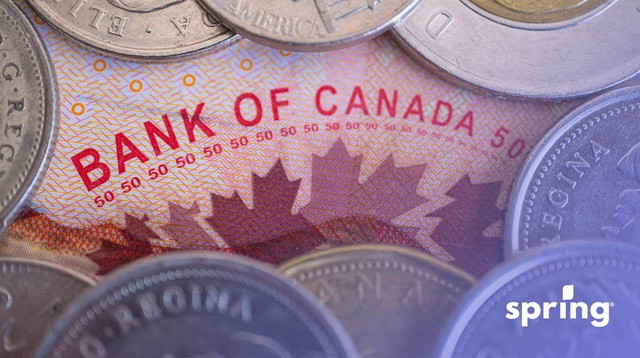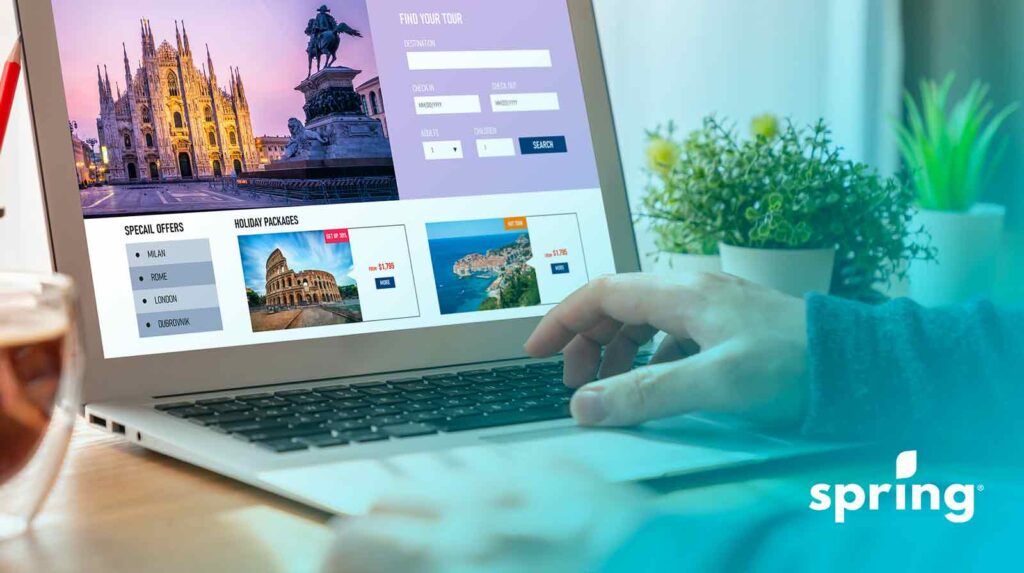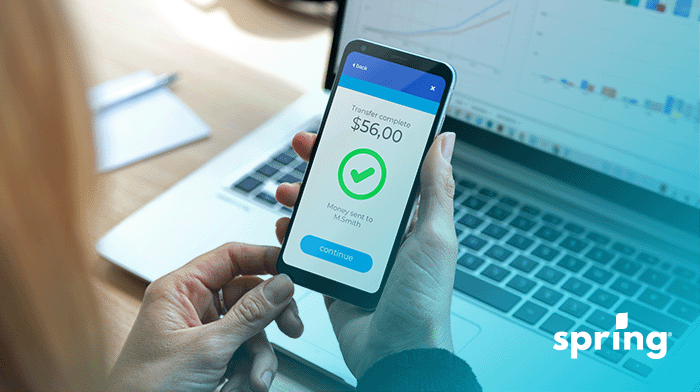That being said, you do want to verify the interest rate is good and you can afford to make the payments. Ideally you would want to look for an open loan as well. This means that you can put payments on the principal of the loan whenever you want. You can also pay it off early in full, all without a penalty attached. When you are applying for this kind of loan, though, you want to verify that you have a shot of getting approved.
Preparing for a Loan
When you are applying for a personal loan, especially a large one, it is important that you know your current financial and credit situations. When it comes to borrowing, you don’t want to apply to too many places because, not only can it hurt your credit score, it is seen as a red flag to lenders.
By understanding your credit situation as well as your financial situation, you will have a better idea of where you can apply and what you would realistically be able to afford.
Understanding Your Financial Situation
When it comes to getting unsecured personal loans, it’s not just your income that has an impact on your application, your monthly debts are included in that as well. How it works is that lenders take your monthly income, because they understand you also have everyday bills to pay, and compare it to your debt payments (car loans, other personal loan payments, mortgages, minimum credit card payments).
Most lenders prefer these debts to be 40% of your monthly income or less. Some private lenders will allow you to go up to 50% of your monthly income. This is referred to as your debt to income ratio or DTI.
Lenders also like to see that you have been employed for a long period of time. If you just started a new position that’s okay though. They will also ask for your previous employer and how long you were there for. Be sure you have at least one paystub from there if needed, as well as pay stubs from your new employer. You may also be required to get a letter of employment.
The last thing you should be aware of is the monthly income minimum for the lender. Most lenders require you to have a $1,200 to $1,500 monthly income minimum. If you are looking for $20,000, your income might have to be higher, especially if you have other debts.
Take a look at your monthly income and debts and come up with a reasonable monthly amount you can afford. You can check out a personal loan calculator, and if your amount falls in the interest rate and loan amount you are looking for, you might be in a better position than you previously thought. It is hard to figure out what your interest rate will be, though, without looking at your credit situation.
Understanding Your Credit Situation
Credit is a bit of a tricky thing. A lot of people think having money and credit go hand in hand. That isn’t really the case. Credit is based on how you manage your debt. You could have thousands in the bank with terrible credit, or no money at all and great credit. It is individual to every person, but, if you aren’t sure where you stand, it is pretty easy to find out. Let’s start with the basics.
There are two main credit bureaus in Canada, Equifax and Transunion. Each of these credit bureaus will have a different credit score for you. This is because different companies report to different credit bureaus while some refer to both. In order to check your credit score in Canada, you have a few different options.
There are apps like Credit Karma (shows your transunion’s score) and Borrowell (shows your Equifax score), that will give you a soft credit score every month or so. While this isn’t always 100% accurate, it will show what range you fall in and is normally accurate within 100 points.
Another place to get your credit score is directly through Equifax or Transunion. They each have a free service just like Credit Karma and Borrowell. You can also get a hard credit check (which is more accurate) once per year, at no cost.
The importance of knowing your credit score is that it will help you decide where you should apply. Places like banks or credit unions may require a higher credit score unless you have a relationship with them. It might be easier to take this route, especially for $20,000, if you are looking to consolidate debt you currently have with that financial institution.
If you are just looking for a loan for a purchase, then a private lender might be a good choice for you since they normally take a slightly lower credit score but still offer decent interest rates.
Breakdown of Credit Scores
Now that we have discussed why credit scores are important to be aware of, let’s take a look at how they break down and what they mean. The easiest place to start is to show you the breakdown of credit scores and how they are ranked.
- Excellent Credit- 800+
- Very Good Credit- 740-799
- Good Credit- 690-733
- Fair Credit- 580-689
- Poor Credit- 300-579
Credit ranges between 300 and 900 with 300 being the lowest and 900 being the highest. The higher your credit score, then the more financially responsible lenders find you. The lower the score you have you may find it difficult to get a loan at the interest rate that you are looking for.
The different categories that are used to define your credit score are:
- Payment history – 35%
- Credit Utilization – 30%
- Credit History – 15%
- Credit Inquiries – 10%
- Public Records – 10%
Because credit scores are broken down into these categories, it is very possible to build up your credit score if it starts to fall. If it is already low but you still need a loan, what do you do then? Well, then you would look for a bad credit loan that will help you to build up your credit score.
Bad Credit Loans for $20,000
When it comes to getting a loan, especially for $20,000, the higher your credit score, the better your chances of getting a good interest rate. That doesn’t mean you won’t get approved though. While it is more difficult to get a higher amount with a low credit score, a lot of lenders will give you a loan with a 600 credit score. Some will even go lower than that to the bottom of the fair category at 580.
If you do get approved for a bad credit loan, it isn’t important to keep in mind that you will likely get a high interest rate. Depending on your overall credit history and your DTI, you may even only be approved for an amount much less than $5,000.
That being said, that doesn’t mean that you won’t get your loan. Even if you take a much lower loan, making those monthly payments could significantly improve your credit score. Every payment makes a difference. You may have to put your purchase on hold for a little while, but any new tradelines on your credit report will help you build your credit score until it is where you need it to be. If you can’t wait for your credit to get better, you may have to opt for a secured personal loan instead. These tend to be more lenient since there is physical collateral involved.
Good Credit Loans for $20,000
What is considered a good credit score to get a $20,000 loan depends on where you are applying. Banks and credit unions prefer you to have a minimum credit score of around 680 to 700. Some banks and credit unions will let you borrow with a slightly lower credit score than this if you have a good relationship with them.
It also depends on your credit history and the reason why you have a lower credit score. For example, you make all your payments on time and your DTI is less than 40% but your credit cards and/or line of credits are maxed out. This means your credit utilization is maxed out which can be a red flag to some lenders so it hurts your credit score.
Private lenders tend to be a little more lenient with your credit score. Some will let you go as low as 620 with interest rates that are pretty similar to what a bank or credit union would offer you. Sometimes the private lenders interest rates are even lower. The important thing to remember is that in cases like this your credit history is just as important as your credit score. Whether you have a collection or consumer proposal on your account could be the difference between what interest rate you are approved for.
When you are looking for a personal loan of at least $20,000 and a low interest rate, you have to remember that even with good credit this can be difficult. Your DTI and monthly income make a big difference when it comes to getting a larger loan.
If you are working with a lender that has all of your other debts and you are looking for a debt consolidation loan, that is likely going to be easier because they already hold the debt, they are just condensing it so you have an easier time to pay it off. This is often less risky for them because it shows them you are willing to pay the debt off, it just needs to be more manageable so you can make that happen.

The Approval Process for a $20,000 Loan
The approval process for a $20,000 personal loan is going to look the same as it would for most personal loans. Lenders are going to request certain documents from you in order to prove that you are capable of handling a loan. There documents include:
- ID (drivers license, passport or provincial ID)
- Pay stubs (LOE letter of employment)
- 90 days of bank statements
- Direct deposit form
- Proof of address (recent bill or rental agreement)
Once all of this information has been provided, the lender will also have to do a hard credit check. This will give them an up to date report that includes your credit score as well as your credit history. The lender will let you know if they need any other documents and/or when they receive an approval.
Once you get the approval offer, you can decide if you would like to accept the loan. Keep in mind that if you get approved for a higher amount than what you were looking for, you can choose to select a lower amount.
How Long Does an Approval Take?
How long an approval for a personal loan takes depends on where you get the loan from. Going to a bank or credit union, it can take anywhere from a few days to a week. There can be more barriers to go through with a traditional lender. Sometimes they can fast track it for you but it really depends on the reasoning for the loan, how likely your approval odds are and if they can contact the person they need to in order to secure your approval.
If you are going through an online or private lender, the approval process is going to be a lot faster. Most online lenders use financial technology to get you an approval the same day. One of these lenders is Spring Financial. The interest rates are also pretty competitive so you aren’t looking at a huge difference if you went to a bank.
In most cases, you can get your money the same day as you get your approval. If you have all of your documents ready to go then you could have your money within just an hour or two after applying. It really just depends on how many documents you need to provide and how long that process takes. This process can be done from home as well so you don’t need to wait for bank appointments to finalize everything.
Monthly Payments on a $20,000 Loan
What the payments look like on a $20,000 loan depend on the interest rate you get approved for. You also have to keep in mind that most loans will include extra fees like loan insurance or administration fees/documentation fees.
That being said, it is difficult to determine what those extra fees are going to look like because they will vary depending on the lender. So, let’s look at what the monthly payments would look like just based on interest rates and credit scores.
If you have a fair credit score (580 to 649) and are taking out a $20,000 loan. If you get approved and are using a term of 60 months (5 years), then your estimated monthly payments could range anywhere from $550 to $840. With a good credit score (650-749) on the same term, your estimated payments are anywhere from $420 to $520 per month.
With an excellent credit score (750+) then you are looking at an estimated $394 to $470 per month. Keep in mind that these are just estimates using Spring Financials loan calculator. They could vary from lender to lender.
If you are looking strictly at interest rates, here is a breakdown.
| Loan Amount | Term | Interest Rate | Monthly Payment |
| $20,000 | 5 years | 7.5% | $400.76 |
| $20,000 | 5 years | 12.1% | $557.38 |
| $20,000 | 5 years | 15.5% | $601.33 |
| $20,000 | 3 years | 7.5% | $777.66 |
| $20,000 | 3 years | 12.1% | $831.55 |
| $20,000 | 3 years | 15.5% | $872.77 |
As you can see based on the different interest rates and loan terms, you do need a higher income in order to afford a $20,000 loan, especially if you have other debt or a lower credit score. The interest payments can add up on a loan of this size.
Getting a $20,000 Personal Loan
When you are looking at getting a loan of this size, it comes down to income and credit. Do you have a history of not making your payments on time? Have you recently been in collections? Do you have a consumer proposal?
What are you using the loan for? What is your monthly income? These are all factors that lenders look at in order to determine if they can approve you for a loan or not. It also helps them to determine what amount they are willing to approve you for and at what interest rate.
It is important to remember that you do have alternatives options other than traditional lenders. At Spring Financial, it doesn’t matter what your credit score is, we can help you find a product that will work for you. Our personal loan ranges from $500 – $35,000, so we can definitely help you look for a $20,000 loan.
With Spring, you can apply online and get your money as soon as the day of approval via e-transfer or 1-2 business days via direct deposit into your bank account. All of our loans are open so there are no penalties for extra payments or paying the loan off early.








